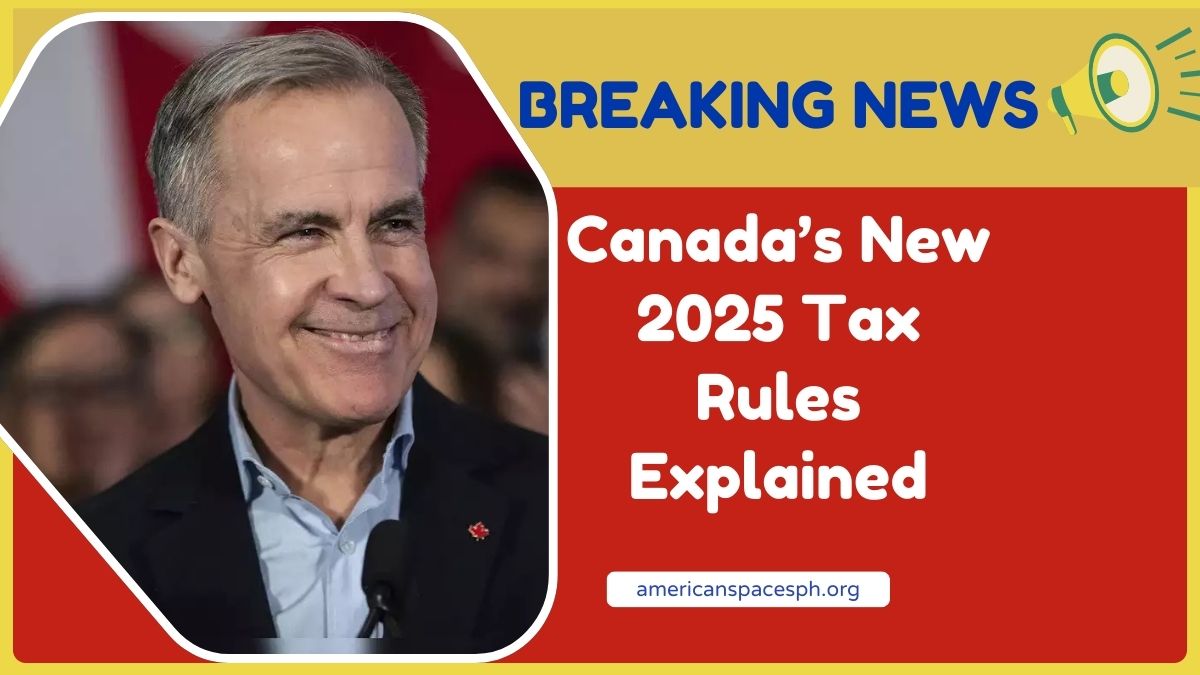Canada’s 2025 tax landscape brings several significant changes affecting individuals, families, and businesses.
From adjustments in income tax brackets to enhancements in savings programs, these reforms aim to address inflation, support economic growth, and provide relief to taxpayers.
Updated Federal Income Tax Brackets
To account for a 2.7% inflation rate, the federal government has adjusted the income tax brackets for 2025:
| Income Range | Tax Rate |
|---|---|
| $0 to $57,375 | 15% |
| $57,375 to $114,750 | 20.5% |
| $114,750 to $177,882 | 26% |
| $177,882 to $253,414 | 29% |
| Over $253,414 | 33% |
These adjustments aim to prevent “bracket creep,” ensuring taxpayers aren’t pushed into higher tax brackets solely due to inflation.
Canada Pension Plan (CPP) Contribution Increases
For 2025, the maximum pensionable earnings under the CPP have increased to $71,300, up from $68,500 in 2024. The basic exemption amount remains at $3,500.
- Employee and Employer Contribution Rate: 5.95%
- Maximum Annual Employee Contribution: $4,034.10
- Maximum Annual Employer Contribution: $4,034.10
- Maximum Annual Self-Employed Contribution: $8,068.20
These increases are part of the ongoing enhancements to the CPP to ensure long-term sustainability.
Tax-Free Savings Account (TFSA) Limit Increase
The TFSA annual contribution limit for 2025 has been raised to $7,000, reflecting adjustments for inflation. This increase allows Canadians to save more in a tax-free environment, promoting financial security and investment growth.
First Home Savings Account (FHSA) Implementation
Introduced to assist first-time homebuyers, the FHSA allows individuals to contribute up to $8,000 annually, with a lifetime limit of $40,000.
Contributions are tax-deductible, and withdrawals used for qualifying home purchases are tax-free, providing a significant boost to those entering the housing market.
Capital Gains Tax Inclusion Rate Maintained
Initially, there were plans to increase the capital gains inclusion rate from 50% to 66.67% for gains exceeding $250,000.
However, as of March 2025, the government has decided to maintain the current 50% inclusion rate, providing stability for investors and businesses.
Lifetime Capital Gains Exemption (LCGE) Increase
Effective June 25, 2024, the LCGE has been increased to $1.25 million, up from $1,016,836.
This exemption applies to the sale of qualified small business shares, as well as farming and fishing properties, offering significant tax relief to entrepreneurs and family-run operations.
Canada Child Benefit (CCB) Enhancements
To support families, the CCB has been adjusted for inflation:
- Children under 6: Up to $7,997 annually ($666.42 per month)
- Children aged 6 to 17: Up to $6,748 annually ($562.33 per month)
These increases aim to assist families in managing the rising cost of living.
Summary Table of Key Changes
| Change | 2024 Value | 2025 Value |
|---|---|---|
| Federal Basic Personal Amount | $15,705 | $16,129 |
| CPP Maximum Pensionable Earnings | $68,500 | $71,300 |
| CPP Max Employee Contribution | $3,867.50 | $4,034.10 |
| TFSA Annual Contribution Limit | $7,000 | $7,000 |
| LCGE Limit | $1,016,836 | $1,250,000 |
| CCB (Under 6) | $7,787 | $7,997 |
| CCB (Aged 6–17) | $6,570 | $6,748 |
Canada‘s 2025 tax changes reflect a commitment to economic stability and support for citizens.
By adjusting tax brackets, enhancing savings programs, and providing targeted benefits, the government aims to address inflation and promote financial well-being.
Staying informed about these changes is crucial for effective financial planning.
FAQs
How does the 2025 TFSA limit affect my savings?
The increased limit allows you to contribute more to your TFSA, enabling greater tax-free growth of your investments.
Who is eligible for the First Home Savings Account?
Canadian residents aged 18 or older who are first-time homebuyers can open an FHSA and benefit from its tax advantages.
What does the LCGE increase mean for small business owners?
The higher exemption allows owners to shelter more capital gains from tax when selling qualifying business assets, reducing their tax burden.
